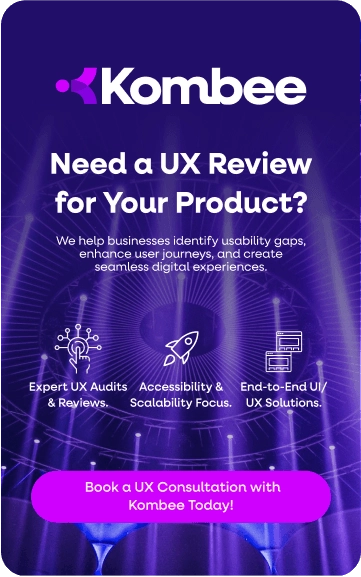Introduction
Think about entering a hospital where each physician is aware of your medical history even before you open your mouth. Your schedules are correctly timed, your medication is correctly prescribed and your care plan is tailored. Sounds like science fiction, doesn't it? Well, that future has arrived and it has all been made possible by AI healthcare solutions. From AI-powered diagnosis to smart patient engagement, healthcare ERP systems are getting smarter, faster and more efficient than ever.
If you’re a healthcare provider or administrator then understanding how medical AI software and ERP with AI are reshaping patient care is important. Let’s dive into how these technologies are transforming operations and why they’re central to the future of AI in healthcare.
Smarter Patient Management with AI
Patient care management has always been intricate. Physicians balance lab results, treatment records and constantly updating clinical data. Today, with AI diagnostics and AI doctors note functionality, healthcare ERP systems are relieving clinicians from this burden.
1. Clinical Data Intelligence and Decision Support
AI-based ERP solutions process enormous amounts of patient information, such as Electronic Health Records (EHR), diagnosis reports and doctor's comments. Using machine learning (ML) and natural language processing (NLP) such solutions can:
- Make quick and more accurate recommendations.
- Identify patient risk factors like readmission or chronic disease exacerbation.
- Track patients in real-time using wearable technology and IoT interface.
This isn't technology for the sake of technology. It translates into improved outcomes for your patients and lower stress for your staff. With medical AI software hospitals are able to make timely and informed decisions improving safety and individualizing care.
2. Automated Patient Records Management
Managing patient records manually is a hassle. AI automates this monotonous task. Here's how:
- NLP tools read physician notes and lab reports and automatically update records.
- AI identifies discrepancies, avoiding mistakes in sensitive patient data.
- Role-based authorizations and AI surveillance keep information safe and HIPAA and GDPR compliant.
The outcome? Reduced administrative workload as well as quicker retrieval of information and improved interdepartmental coordination. Combining ERP with AI streamlines patient management to a new level.
3. Personalized Patient Engagement
Patients these days demand instant replies and tailored treatment. AI-powered chatbots and digital assistants embedded within ERP systems are transforming the way hospitals interact with patients:
- Self-service reminders for medications and appointments.
- Custom health advice tailored to patient history.
- Telemedicine and remote monitoring support.
Through applying generative AI to healthcare, clinicians can engage patients 24/7 improving care plan adherence and satisfaction.
Read More: Curious about the role of ERP in digital healthcare? Check out our blog, ‘Healthcare ERP Systems: How Web Solutions Are Powering Digital Healthcare’.
Streamlining Operations with AI
It's not only patient care that's improved. AI healthcare solutions are revolutionizing administrative and operational business processes as well.
1. Smart Workflow Automation
Billings, claims adjudication and insurance verification are done repeatedly and take hours. ERP with AI automates these:
- Robotic Process Automation (RPA) manages scheduling and reporting.
- AI alerts anomalies in billing or operations in real time.
This minimizes errors and saves time allowing your team to do more important work instead of paperwork.
2. Resource and Supply Chain Management
AI enhances inventory management, from medical equipment to equipment:
- Predictive analytics predict demand and avoid stockouts.
- Automated procurement simplifies vendor interactions.
- Real-time tracking enables optimal equipment utilization.
Healthcare providers who utilize medical AI software can sustain efficiency, steer clear of expensive shortages and provide uninterrupted patient care
3. Financial and Workforce Insights
Financial health and workforce productivity are critical in healthcare. AI assists:
- Predicting cash flow trends for improved financial planning.
- Track staff scheduling, certifications and compliance requirements.
- Balance labor supply with patient demand through intelligent scheduling algorithms.
With AI solutions for healthcare, hospitals see into their operations, saving costs and increasing staff satisfaction.
Integration and Compliance Simplified
A top healthcare challenge is getting all the systems to work together seamlessly. AI-powered ERP systems solve this by:
- Integrating EHRs as well as telehealth platforms and IoT devices into cohesive workflows.
- Incorporating compliance monitoring for HIPAA, GDPR and other laws.
- Ongoing scanning for threats to security to safeguard sensitive patient information.
Through the use of generative AI in healthcare organizations can respond to regulatory updates in a timely manner without impacting care. This keeps operations smooth and secure.
What the Future of AI in Healthcare ERP Is
The AI diagnostics role, the AI doctors note and the medical AI software in healthcare ERP systems is only the beginning. Tomorrow's AI future in healthcare holds in store for us:
- More and more predictive tools that forecast patient needs.
- AI-powered insights fueling customized medicine.
- Completely automated hospital administrative processes for hospitals of all sizes.
Hospitals that adopt ERP with AI today are positioning themselves for improved patient outcomes, operating efficiency and financial viability tomorrow.
Conclusion
AI is no longer a concept of the future in healthcare, it's actively redefining ERP systems as smart, patient-centric platforms. With AI implementations in healthcare, hospitals can provide proactive, data-centric patient care, automate administrative tasks and ensure compliance and security with ease. From AI in diagnostics to generative AI in healthcare the options are expansive with potential for personalized, effective and timely care.
Those that want to be ahead of the game can count on partners such as Kombee, who advance ERP with AI solutions that allow for smarter patient management and optimized operations. With Kombee, healthcare organizations are boldly walking into the future of healthcare AI.
Frequently Asked Questions
How is AI being used in ERP systems?
AI in ERP systems automates tasks, predicts trends, optimizes inventory and resources and detects anomalies, improving operational efficiency and reducing errors.
How is AI used in healthcare to improve patient care?
AI enhances patient care through predictive diagnostics, personalized treatment plans, real-time monitoring and virtual assistants, ensuring timely and precise care.
What is the role of AI in enhancing decision-making in healthcare?
AI analyzes clinical data, identifies risks and provides evidence-based recommendations, enabling faster, more accurate and patient-centered decisions.





